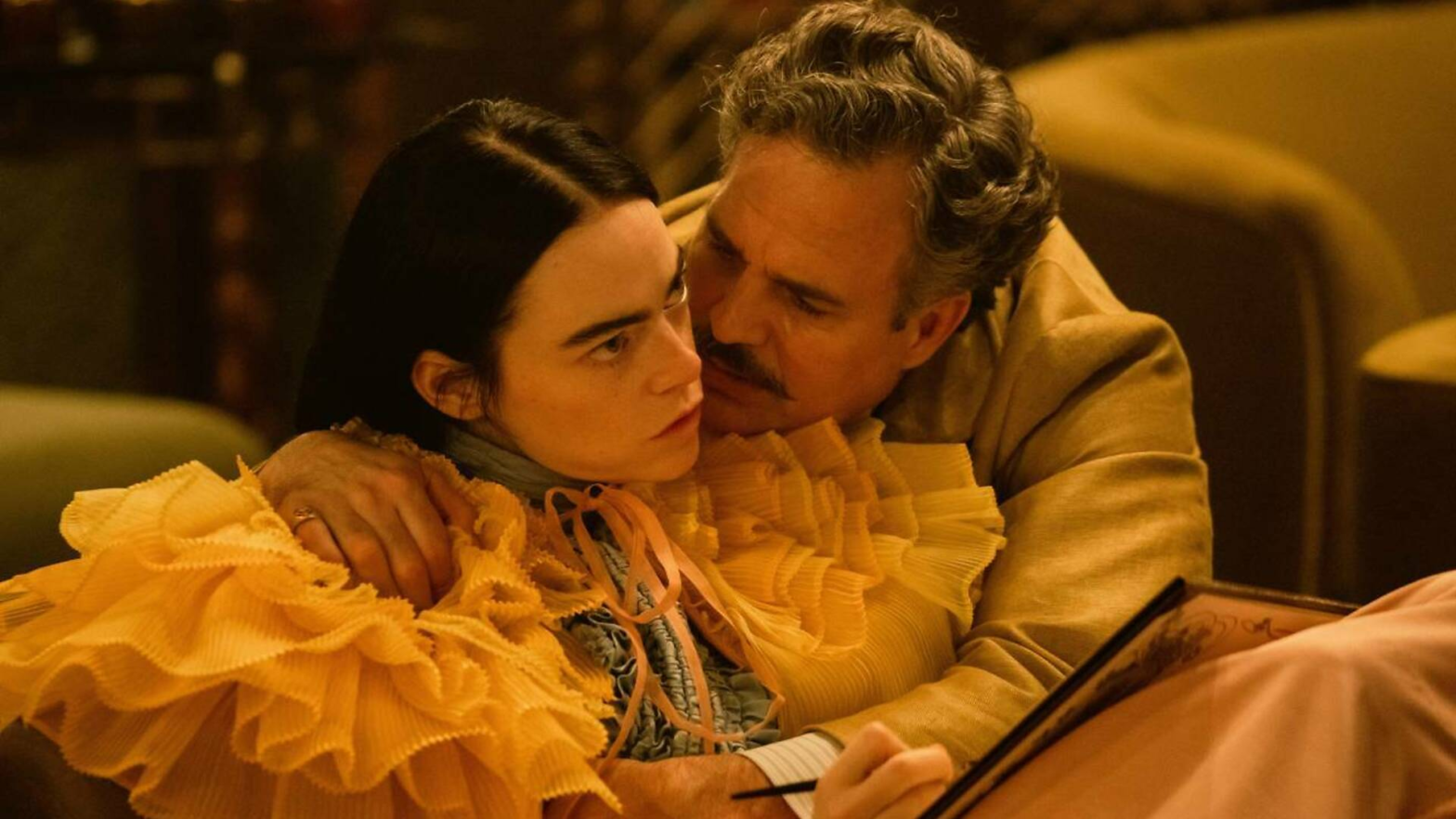
Yorgos Lanthimos’s feminist Frankenstein comedy is scabrous, smart and obscenely funny
Alasdair Gray’s criminally underread 1992 novel has been fashioned into an ebullient, mischievous, and sexually supercharged Victorian romp by Greek director Yorgos Lanthimos (The Favourite). It’s hands down the funniest film of the year so far, a pointed picaresque that masks darker thoughts beneath a cargo of belly laughs and giddy, c-bombing coarseness. Emma Stone is a riot, Mark Ruffalo goes full Terry-Thomas, and the ludicrously opulent sets are a feast for the eyes.
Like Gray’s book itself, Poor Things is a mutation of Mary Shelley’s ‘Frankenstein’ – a squelchy, bone-sawing journey of scientific exploration that births a truly off-kilter parent-child relationship. Then it morphs again: this time into a ‘Candide’-like odyssey of female liberation that’s filled with sex, swearing and controlling men and backdropped by a series of European cities.
The opening shot, a splash of colour before Robbie Ryan’s cinematography bathes Victorian London in crisp black and white, introduces Stone as a well-to-do woman plunging to her death into the Thames to escape some unknown anguish. Enter Willem Dafoe’s scientist, Dr Godwin Baxter, to fish out the unknown woman’s corpse and reanimate it by transplanting a new brain into her cranium. Not knowing her true identity, he names her Bella; she comes to call him ‘God’.
Baxter’s disfigured face, a jigsaw puzzle of scars, and his affinity for bonkers surgical experimentation – the gardens of his villa are patrolled by dog-chicken hybrids (‘chogs’) and other doolally creations – disguise a gentle soul with fatherly feelings for the inquisitive Bella. As the years pass, it’s clear those feelings they don’t extend to letting her explore the world outside. Poor Things is driven by the idea that it’s in men’s nature to try to control and imprison women; Dafoe’s scientist is just a kindlier kind of jailor.
To that end, Baxter fixes on marrying Bella to the mild-mannered medical student, Max McCandless (Ramy Youssef), he’s hired to record her developmental leaps. This surgical softboi soon becomes enraptured with his fast-maturing subject, teaching her geography and gently explaining to her that masturbating in public is a no-no.
Then Ruffalo’s womanising lawyer, Duncan Wedderburn, hired to put together the prenup, spirits Bella away to a fantastical, pastel-coloured Lisbon for adventure, oysters, and much ‘furious jumping’ (The Favourite co-writer Tony McNamara’s screenplay takes impish in language as a tool to reinterpret the world).
As with The Favourite, Lanthimos makes extensive use of fish-eye lenses. Here, the effect is to beckon you into a giant Victorian goldfish bowl that he fills with wonder and weirdness. A horse-drawn trap turns in the street to reveal a fake horse’s head at the front and a chugging engine behind.
Poor Things itself is an equally – and brilliantly – surprising hybrid: a feminist coming-of-age story, monster movie and bawdy, foul-mouthed sex romp that the Greek alchemist has somehow forged into a masterpiece.
Poor Things premiered at the Venice Film Festival. It’s in US theaters Dec 8 and UK cinemas 12 Jan, 2024.
Phil de Semlyen
Written by Phil de Semlyen
